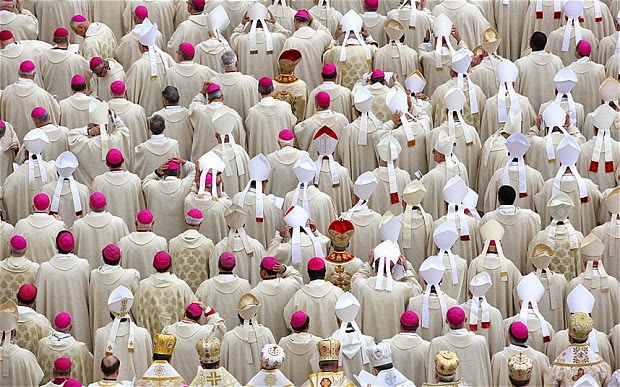There has been much commentary on the recent synod in Rome where at first it appeared that the Roman Catholic Church might finally come into the 21st Century in terms of its treatment of gays - as well as divorced and remarried Catholics and its position on contraception. Sadly, the forces of reaction rallied and promising statements were erased from the final statement at the end of the synod. Some hope that next year's assembly may be more progressive, but in order for that to happen the Church's sick neurosis toward all things sexual must end. Most importantly, a mindset that formed in the Middle Ages must die once and for all. That mindset? Chapter 14 of The Origins and Role of Same-Sex Relations in Human Societies explains it well. It's a mindset alive and well within the Church hierarchy. Here are some excerpts:
There is one evil, an evil above all other evils, that I am aware is always within me, that grievously and piteously lacerates and afflicts my soul. It was with me from the cradle, it grew with me in childhood, in adolescence, in my youth it always stuck to me, and it does not desert me even now that my limbs are failing because of my old age. This evil is sexual desire, carnal delight, the storm of lust that has smashed and battered my unhappy soul, emptied it of all strength, and left it weak and empty.
Late in the life of Saint Anselm of Canterbury anguished in these words over the sexual drive that, despite a lifetime of devotion to God, stubbornly refused to release him even in old age. In writing these words, Anselm could have been speaking for many other Medieval clergymen who devoted themselves to the church's strict anti-sexual moral teachings - a moral code that demonized their own sexual natures. The roots of the psychological disturbance or neurosis are easy to see in the sincere dedication of these devout clergymen to the ascetic sexual ideal that not only required them to suppress a fundamental human instinct, but taught them that an innermost selves was evil. The conflict between their beliefs, on the one hand, and the urges of their bodies on the other, set in motion a psychological struggle that was, in fact, a classic example of neurosis as defined in standard psychoanalytic reference work, . . .
Such a conflict would appear to be particularly acute in the case of a person conditioned by religious indoctrination to be repelled by sex, one of the most basic instinctual drives. If the urges were homosexual, the psychological stress would be even greater. The "neurotic symptoms" produced in individuals with such an internal conflict typically take the form of reaction formation, a psychological defense in which the negativity they feel toward the intolerable characteristic is directed to others who display the same loathed characteristics. . . . . the level of hostility they displayed to homosexuality was directly proportional to the strength of homosexual responsiveness recorded within each of them.
Putting it another way, because of the distorted lens through which such clergymen perceiced sex, and because of his own emotional discomfort with it, he could never deal with the subject truly rationally or dispationately. Hence the references we see to sexual behavior in the morally conservative clergy of the Middle Ages are in almost all cases couched in histrionic and super-heated hyperbole. Likewise the visceral disgust conservative clergy felt for those practicing homosexuality . . . .
The centuries have passed since this mindset developed, but most of the aging Catholic clerics still cling to a 13th century concept of "natural law" and exhibit the same neurosis described by the author. Thus, when I described the Church hierarchy and fundamentalist Christians as "mentally ill," they are in fact mentally/psychologically disturbed. Until this mindset dies, gays can expect more hysteria as we gain equality. The more we become accepted by society, the greater the stress on those indoctrinated in out dated and ignorant understandings of sexuality.

No comments:
Post a Comment